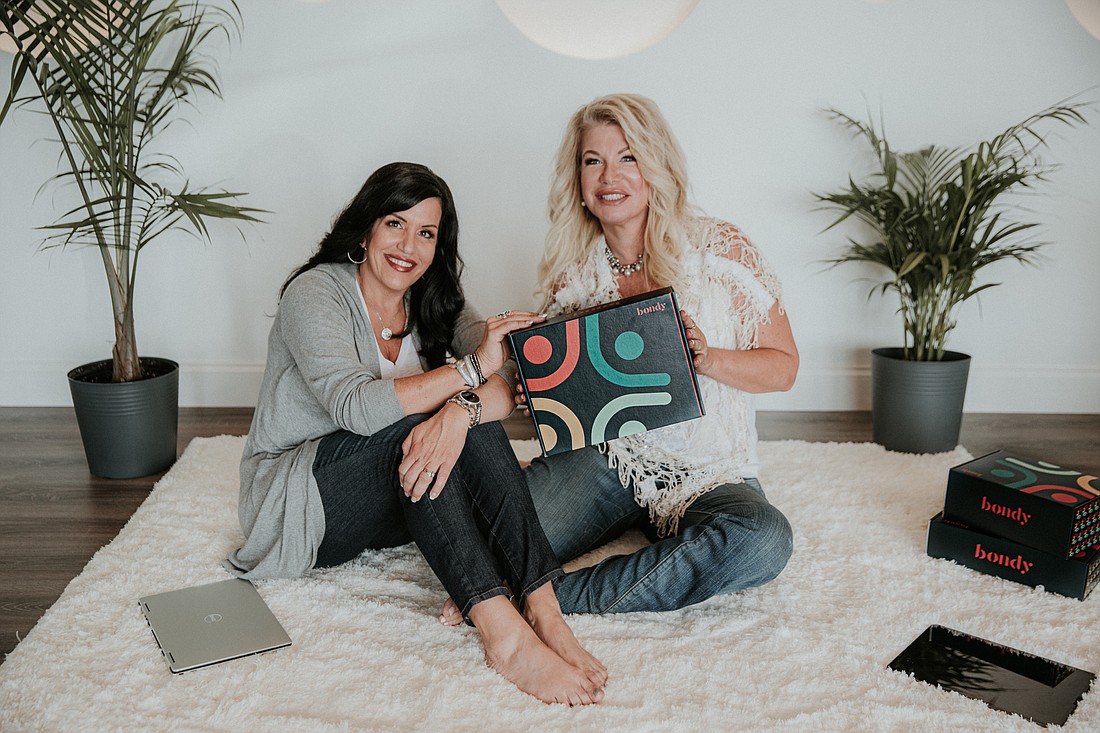- April 8, 2025
-
-
Loading

Loading

The early days of the pandemic, starting in April, squeezed Kimberly Martinez like nothing else in nearly 20 years of running her own business.
‘We seem to shine when the worst odds are against us.’ Kimberly Martinez, Bondy
The Sarasota-based entrepreneur, behind a line of fashion-forward lanyards, necklaces and accessories for holding ID badges, under the brand name BooJee Beads, estimated she had enough cash to last about 90 days. The company, with some 15 employees and a 15,000-square-foot facility and operations center outside Cleveland, received some federal Paycheck Protection Program funds. But by July, Martinez thought the company, which sells products at trade shows and in thousands of boutiques nationwide, would be out of money.
“We honestly believed the phone was going to stop ringing. The need for our product had greatly diminished,” Martinez says, noting people working from home don’t go to trade shows, and for the most part, don’t need ID badges. “We knew we had to outrun the powder keg. We knew we had to reinvent ourselves.”
The reinvention is Bondy. The company, formed in June, creates and delivers curated gift boxes geared toward companies and teams that can’t bond like they used to, prior to the pandemic. Bondy boxes are based on themes, from motivation to recognition to celebration, with items inside that appeal to the five senses. Prices for Bondy boxes start at $40 for the Sweet, Sour & Savory Box to $120 for a Special Wedding Bells Gift Box — one of the few boxes not specifically designed for businesses. Most boxes are in the $50-$60 range. “Everything you used to do around the conference room table, we want to re-create that,” Martinez says.
Other companies do boxes, including BoxFox, a Los Angeles-based firm launched in 2014 geared toward millennials that has garnered buzz from several national publications and blogs. Smaller entities, on Etsy and other sites, also offer some kind of curated gift box.
BoxFox isn’t focused on a business-to-business model but SnackNation, another L.A. based company, comes closest to the Bondy model, Martinez says. In her personal research on SnackNation, Martinez believes Bondy can beat that company on both price and customer service. That’s also why Martinez senses a big opening in the fragmented and mostly untapped curated gift box market. She thinks Bondy can be a $20 million business by 2025 — maybe sooner. That would best BooJee Beads, which did just under $6 million in revenue in 2019.
“I’d be really disappointed if we weren’t at $20 million within five years,” says Martinez, a former Fortune 50 executive who founded the lanyard business in 2002 with her sister-in-law Lisa Harrington, partially in a now-or-never entrepreneurial leap after 9/11. The pair are business partners with Bondy, too. “This is one of the greatest opportunities ever. The market opportunity is huge.”
Martinez has some experience in setting up systems to bond with remote employees. BooJee Beads, under the parent company Bonitas International — the firm remains in business, including fulfilling a $1 million contract for Wal-Mart — has been connecting with remote employees for years. With employees in Ohio, Florida and other states, they were doing virtual birthday calls and sending bonus boxes to employees long before 2020.
When the crisis hit BooJee Beads, Martinez and Harrington brainstormed about solutions. “We said ‘we know we can do this,’” Martinez says. “We have the tools to make this happen.”
Those tools included getting 4,000 boxes out every week to Walmart to fulfill its BooJee Beads contract. The company is using current vendors and sources to find snacks and goodies for the boxes, and quickly expanded its network to include quirky and fun outlets, for natural snacks and other items. It switched mostly idle BooJee Beads employees to Bondy tasks.
Like with most new products or services, customer education is a key early challenge. At first, Bondy targeted CEOs with a direct marketing campaign. It quickly shifted to sales managers of big teams, reasoning they would want to provide gifts to their teams. Bondy has scored two early wins with that strategy, securing orders for 200 boxes for a Spotify North America sales team and 400 for a Johnson & Johnson department.
The company is spending about $10,000 a month on marketing and customer acquisition, Martinez says, part of an overall investment into Bondy that’s well into the six figures. In addition to targeting sales leaders, Bondy has invested in online and social media ads, including LinkedIn — what Martinez calls Bondy’s target market nirvana — Google and Facebook. It also plans to roll out some geo-targeted ads, to specific buildings in major cities. “We need to get through the noise,” Martinez says. “We need to get our message heard.”
Martinez says Bondy, beyond marketing, is a nod to customers, employees, even herself, that a generational predicament like the pandemic doesn’t have to be the end. “We seem to shine,” she says, “when the worst odds are against us.”